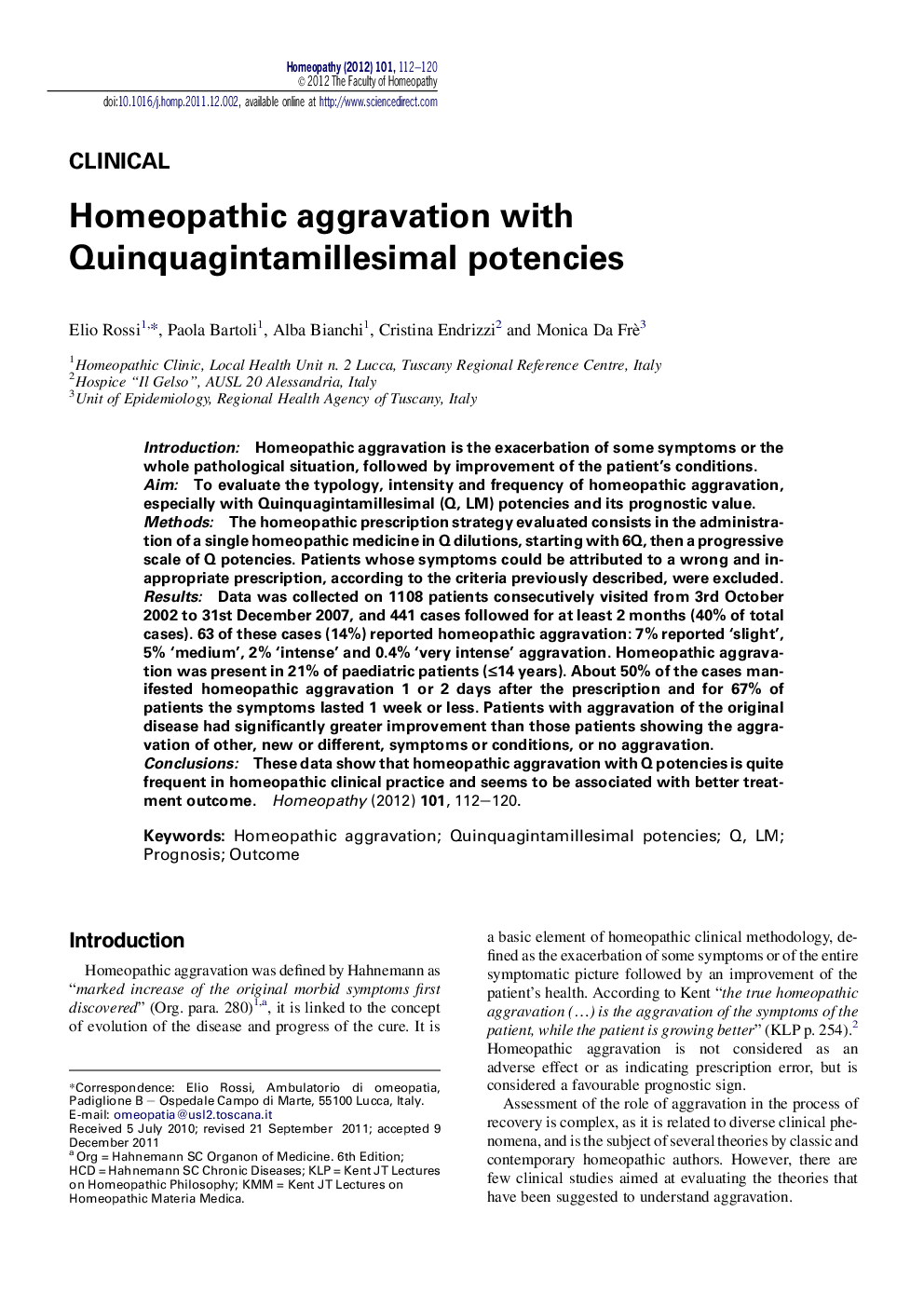| Article ID | Journal | Published Year | Pages | File Type |
|---|---|---|---|---|
| 2629790 | Homeopathy | 2012 | 9 Pages |
IntroductionHomeopathic aggravation is the exacerbation of some symptoms or the whole pathological situation, followed by improvement of the patient’s conditions.AimTo evaluate the typology, intensity and frequency of homeopathic aggravation, especially with Quinquagintamillesimal (Q, LM) potencies and its prognostic value.MethodsThe homeopathic prescription strategy evaluated consists in the administration of a single homeopathic medicine in Q dilutions, starting with 6Q, then a progressive scale of Q potencies. Patients whose symptoms could be attributed to a wrong and inappropriate prescription, according to the criteria previously described, were excluded.ResultsData was collected on 1108 patients consecutively visited from 3rd October 2002 to 31st December 2007, and 441 cases followed for at least 2 months (40% of total cases). 63 of these cases (14%) reported homeopathic aggravation: 7% reported ‘slight’, 5% ‘medium’, 2% ‘intense’ and 0.4% ‘very intense’ aggravation. Homeopathic aggravation was present in 21% of paediatric patients (≤14 years). About 50% of the cases manifested homeopathic aggravation 1 or 2 days after the prescription and for 67% of patients the symptoms lasted 1 week or less. Patients with aggravation of the original disease had significantly greater improvement than those patients showing the aggravation of other, new or different, symptoms or conditions, or no aggravation.ConclusionsThese data show that homeopathic aggravation with Q potencies is quite frequent in homeopathic clinical practice and seems to be associated with better treatment outcome.
